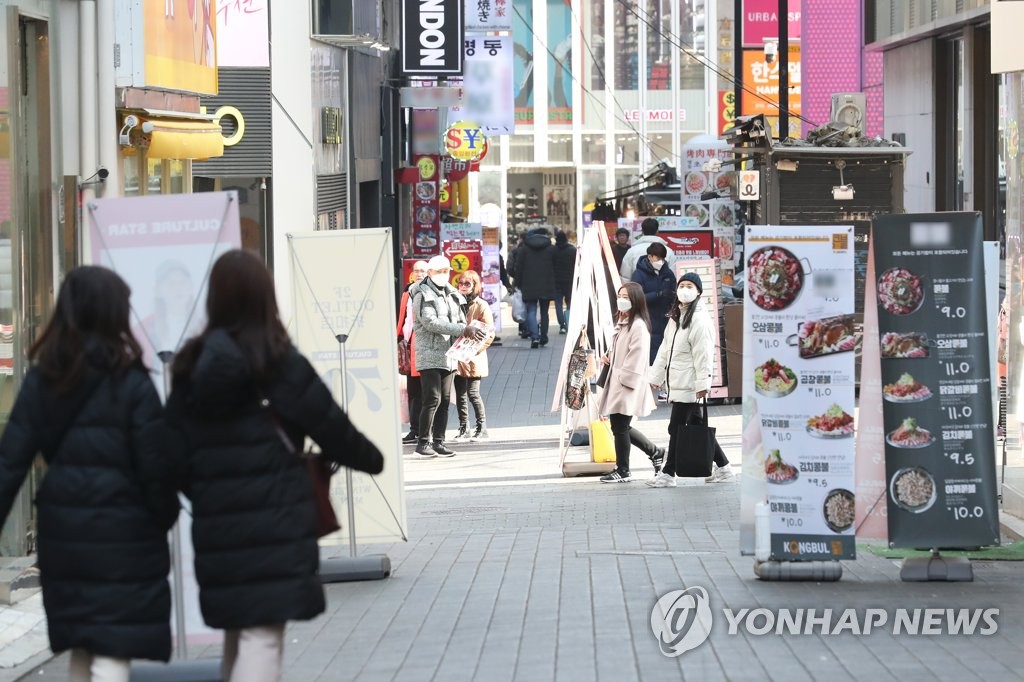Cities in northern China are ramping up their defense against a looming inflow of the coronavirus after the urban centers have largely managed to put the pneumonic contagion in remission.
Beijing and cities in Shandong province are rushing to impose temperature screening and apply more red tap in response to the emerging spike in arrivals from South Korea.
The neighboring country has seen its tally of confirmed infection cases spiral to more than 1,000 within less than a week, the highest outside China, amid alarming community outbreaks, particularly in the southeastern city of Daegu.
Hong Kong is among the first territories to have slapped an outright entry ban on South Koreans and anyone who has been to the country within the past 14 days, with Cathay Pacific canceling all flights there from Wednesday onwards, while a plane originating from Seoul has also been turned away by Israel.
A medical professional in a protective suit works inside a temporary isolation point in Seoul. Photo: Yonhap
Now cities in Shandong, separated by the Yellow Sea from South Korea, are bracing for a surge of imported cases as many Koreans board planes and descend on the province in droves.
South Korean news agency Yonhap and local papers in Shandong reported on Tuesday that local authorities in Weihai have put 167 passengers from South Korea under compulsory 14-day quarantine at an appropriated hotel, with calls from local residents to ban their entry altogether.
Arrivals from Japan will also be confined to an observation facility for two weeks. The coastal city in Shandong has only recorded 38 cases thus far, and 27 have been cured and discharged from hospitals.
In Qingdao, the largest city in the province, officials have scrambled to mandate stringent monitoring of the health conditions of the local Korean diaspora as well as checks on foreign nationals entering the city.
Local police and health inspection teams will hold those sustaining febrile and respiratory infection symptoms at isolation centers and in wards.
Other measures being adopted in Shandong to ward off the “reverse spread” of the pathogen – which started in the central Chinese city of Wuhan in December – include thorough sterilization of aircraft plying international routes and a proposal of a tracking bracket to be worn by anyone from South Korea.
A medical worker in Seoul. South Korea now has the highest number of confirmed infections outside China. Photo: Yonhap
Seats on flights from Seoul to Qingdao are being snapped up with economy class prices fetching up to 4,000 yuan (US$570) from the off-peak level of 500 yuan. Economy class tickets from the Korean capital to Shanghai are now worth as much as 7,000 yuan.
Cadres in Beijing, a city that is also teetering on the brink of a massive local outbreak with confirmed cases hitting 400 as of Wednesday, are reportedly considering sealing off its commuter town of Wangjing, where tens of thousands of Koreans live. Posts in both Chinese and Korean urging self-quarantine were handed out to residents there.
South Korean papers say the surge in the price of air tickets may have more to do with flight cancellations due to the epidemic and the fact that those panicked passengers heading for China are indeed Chinese – those working in South Korea fleeing the virus-hit country – rather than locals. Koreans leaving the county may find it easier to fly to Japan as they will need a visa before entering China.






















